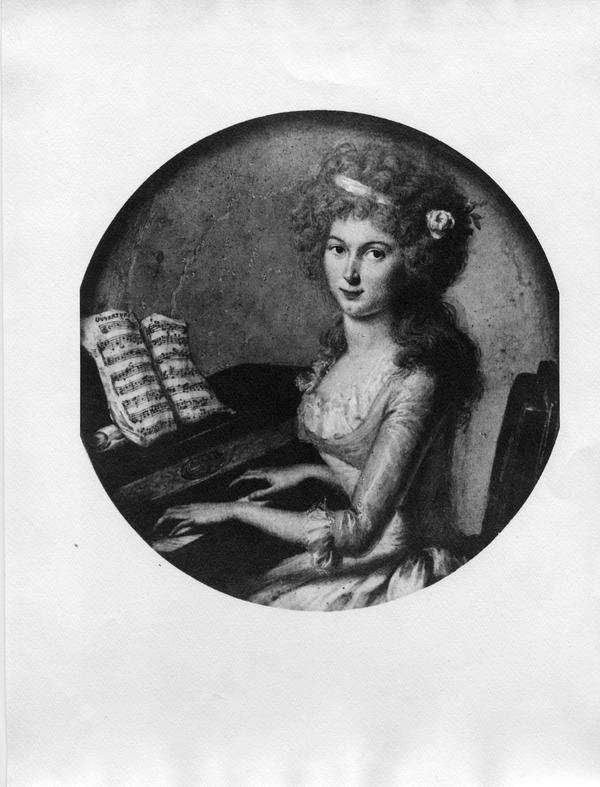In September, I traveled to the Hagley Museum and Library with the support of an Exploratory Research Grant to consult the diaries and letters of Margaret Izard Manigault (1779–1857). As a musicologist, I was intrigued by her sustained correspondence with Josephine du Pont (1770–1836), which, according to Hagley finding aids, contained discussions of music. The materials seemed like a solid lead for a nascent book project about women’s music collecting and collectivities in the revolutionary Atlantic. But the result of my research at the Soda House was far more exciting: musical references hid in plain sight throughout the entirety of the du Pont women’s papers and materials, from Sophie Madeleine Dalmas du Pont’s portrait to Victorine du Pont Bauduy’s commonplace book—it was far too much to consult in only five days. The Manigault-du Pont friendship seems to be only one small window into a musical life that took shape over decades along the Brandywine River and in Philadelphia society.

My continuing research will focus on music in the du Pont women’s correspondences and papers from the 1790s to 1830s. Alongside their émigrées acquaintances from Haiti and France, the first generation of du Pont women to settle in the United States seemed to prize music as a social grace and pleasurable art, like fashion or drawing. However, their daughters, daughters-in-law, nieces, neighbors, and servants began to engage music in more pious, domestic, and familial manners quite distinct from the courtly French culture imported by their elders. By the 1820s, music in the du Pont women’s world bore traces of the intercultural contacts their family experienced. This musical investigation thus promises to reveal a much broader story about Americanization in the revolutionary Atlantic, fueled by cultural hybridity and the entwined, changing expectations around gender, race, and class during the Age of Revolutions.
Dr. Rebecca Geoffroy-Schwinden is an associate professor of music history and coordinator of the program in Critical Studies in Music and Society at the University of North Texas. In support of her research, Dr. Geoffroy-Schwinden received a grant from the Center for the History of Business, Technology, & Society at the Hagley Museum and Library.
